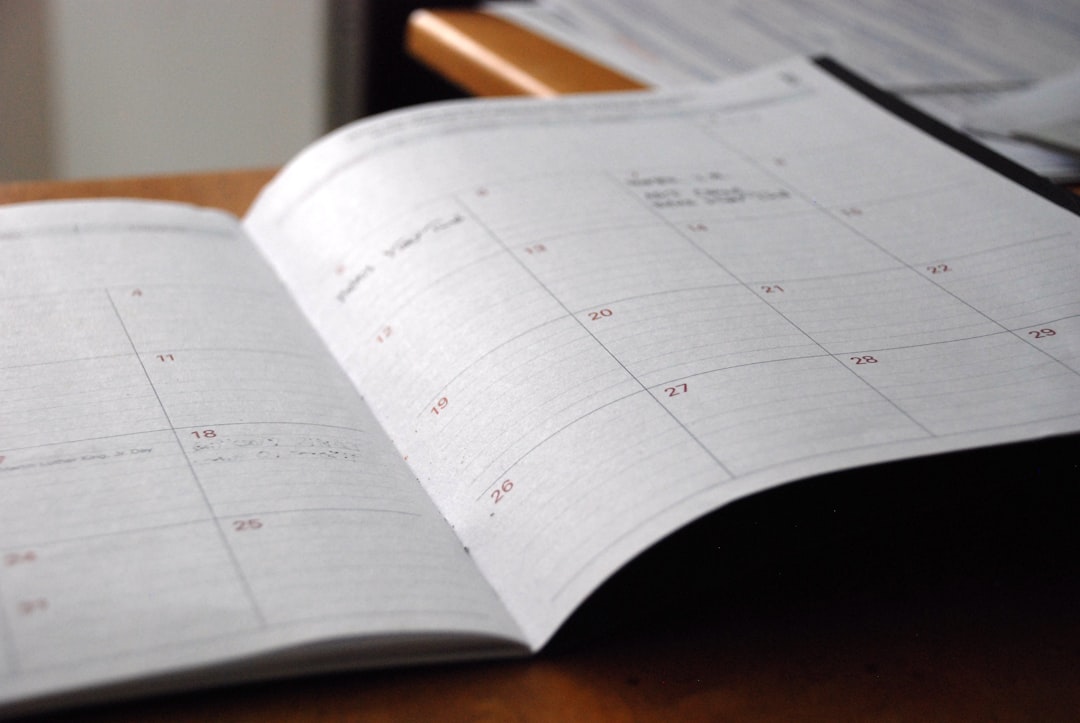The Importance of Budgeting: Part 1 – Introduction
Welcome to our comprehensive guide on the importance of budgeting. In this series of blog posts, we will delve into the various aspects of budgeting and provide you with valuable insights on how to effectively manage your finances. Whether you are a seasoned budgeter or just starting out, this guide will equip you with the knowledge and tools to take control of your financial future.
Understanding the significance of budgeting is crucial for anyone striving to achieve financial stability and success. By implementing a well-structured budget, you can gain a clear understanding of your income, expenses, and financial goals. This knowledge empowers you to make informed decisions, prioritize spending, and save for the future.
Throughout this series, we will explore the benefits of budgeting, setting financial goals, creating a budget, tracking expenses, adjusting and reviewing the budget, and conclude with a summary of the key takeaways.
By the end of this guide, you will have a comprehensive understanding of how to develop and maintain a budget that aligns with your financial aspirations. Let’s begin by exploring the benefits of budgeting and how it can positively impact your financial well-being.
Benefits of Budgeting
When it comes to managing your finances effectively, budgeting is a crucial tool that can help you achieve your financial goals and maintain control over your money. While some may view budgeting as a restrictive practice, it actually offers numerous benefits that can significantly improve your financial well-being. In this section, we will explore the key advantages of budgeting and why it should be an integral part of your financial planning.
1. Financial Awareness: One of the primary benefits of budgeting is that it enhances your financial awareness. By creating a budget, you gain a comprehensive understanding of your income, expenses, and overall financial situation. This awareness allows you to identify areas where you may be overspending or neglecting savings, enabling you to make informed decisions and take necessary actions to improve your financial health.
2. Goal Setting: Budgeting provides a structured framework for setting and achieving your financial goals. Whether you aim to save for a down payment on a house, pay off debt, or build an emergency fund, a budget helps you allocate your resources effectively and track your progress towards these objectives. It provides a roadmap that keeps you focused and motivated, making it easier to stay on track and accomplish your financial aspirations.
3. Control over Spending: Without a budget, it is easy to lose control over your spending habits. By setting spending limits and tracking your expenses, a budget empowers you to make conscious choices about where your money goes. It helps you differentiate between essential and non-essential expenses, enabling you to prioritize your financial resources accordingly. With this newfound control, you can avoid unnecessary debt and make wiser financial decisions.
4. Debt Reduction: Budgeting plays a pivotal role in reducing and managing debt effectively. By allocating a portion of your income towards debt repayment, you can systematically pay off outstanding balances and avoid accumulating additional debt. A budget also allows you to identify areas where you can cut back on expenses and redirect those savings towards debt repayment, accelerating your progress towards becoming debt-free.
5. Emergency Preparedness: Life is unpredictable, and unexpected expenses can often throw your financial plans off track. However, with a budget in place, you can build an emergency fund to handle such contingencies. By setting aside a portion of your income each month, you create a safety net that can protect you from financial setbacks. This emergency fund provides peace of mind and ensures that you are prepared for any unforeseen circumstances that may arise.
6. Improved Financial Decision-Making: Budgeting equips you with the necessary information to make informed financial decisions. With a clear understanding of your income, expenses, and savings, you can evaluate different options and choose the most beneficial course of action. Whether it is deciding on a major purchase, evaluating investment opportunities, or planning for retirement, a budget provides the financial data and insights needed to make wise choices that align with your long-term financial goals.
7. Reduced Stress: Financial stress can have a significant impact on your overall well-being. By having a budget in place, you gain control over your finances, reduce uncertainty, and alleviate stress. A budget allows you to plan for the future, ensuring that you have the resources to meet your financial obligations and achieve your desired lifestyle. This sense of control and security can greatly enhance your peace of mind and overall quality of life.
Budgeting offers a multitude of benefits that can transform your financial situation and provide a solid foundation for achieving your goals. By increasing your financial awareness, enabling goal setting, providing control over spending, facilitating debt reduction, ensuring emergency preparedness, improving decision-making, and reducing stress, budgeting empowers you to take charge of your financial future. So, start budgeting today and unlock the immense advantages it brings to your financial well-being.
This sense of control and security can greatly enhance your peace of mind and overall quality of life.
Setting Financial Goals
Setting financial goals is a crucial step in the budgeting process. Without clear goals, it can be challenging to stay motivated and focused on your financial journey. By setting specific, measurable, achievable, relevant, and time-bound (SMART) goals, you can create a roadmap for your financial success.
One of the first steps in setting financial goals is to identify what you want to achieve. Are you looking to pay off debt, save for a down payment on a house, or build an emergency fund? Defining your goals will help you prioritize your spending and make informed decisions about where to allocate your money.
Once you have identified your financial goals, it is essential to break them down into smaller, actionable steps. For example, if your goal is to pay off $10,000 in credit card debt within a year, you can break it down into monthly targets. This approach allows you to track your progress regularly and make any necessary adjustments to stay on track.
It is also crucial to make your financial goals realistic and achievable. While it is great to aim high, setting unrealistic goals can lead to frustration and disappointment. Take into account your current financial situation, income, and expenses when setting your goals. It is okay to start small and gradually increase your targets as you make progress.
Furthermore, ensuring that your financial goals are relevant to your overall life objectives is essential. Consider how achieving your goals will contribute to your long-term plans and aspirations. This perspective will help you stay motivated and committed to your budgeting efforts.
Lastly, setting a timeline for achieving your financial goals provides a sense of urgency and helps you stay focused. Without a deadline, it is easy to procrastinate and lose sight of your objectives. By setting specific target dates, you can create a sense of accountability and measure your progress along the way.
Remember, financial goals are not set in stone. As your circumstances change, you may need to adjust or revise your goals. Regularly reviewing and reassessing your goals will ensure they remain relevant and attainable.
Setting financial goals is a crucial step in the budgeting process. By defining your objectives, breaking them down into actionable steps, making them realistic and relevant, and setting a timeline, you can create a roadmap for financial success. Stay focused, stay motivated, and watch as your financial dreams become a reality.
Remember, financial goals are not set in stone.
Creating a Budget
Creating a budget is a crucial step in taking control of your finances and achieving your financial goals. It allows you to have a clear understanding of your income, expenses, and savings, enabling you to make informed decisions about your money. By creating a budget, you can allocate your resources effectively, prioritize your spending, and ultimately improve your financial well-being.
When starting the budgeting process, it’s important to gather all the necessary financial information. This includes your income sources, such as your salary, freelance work, or investments, as well as any additional sources of income. Next, you’ll want to compile a comprehensive list of your expenses, both fixed and variable. Fixed expenses include your rent or mortgage, utilities, insurance, and loan payments, while variable expenses consist of groceries, entertainment, dining out, and other discretionary spending.
Once you have a clear picture of your income and expenses, it’s time to set financial priorities. Determine your short-term and long-term financial goals, such as saving for a down payment on a house, paying off debt, or building an emergency fund. By establishing these goals, you can align your budgeting efforts accordingly and ensure that your money is being allocated towards achieving them.
Now that you have a solid understanding of your financial situation and goals, it’s time to create your budget. Start by calculating your total monthly income and subtracting your fixed expenses. This will give you a clear idea of how much disposable income you have each month. From there, allocate a portion of your disposable income towards your financial goals, such as savings or debt repayment.
When creating your budget, it’s important to be realistic and flexible. Take into account unexpected expenses that may arise, such as car repairs or medical bills. It’s also essential to leave room for discretionary spending, as depriving yourself entirely can lead to frustration and potential budgeting failures. By allowing yourself some flexibility, you can maintain a healthy balance between saving and enjoying your hard-earned money.
Utilizing budgeting tools and apps can greatly simplify the process of creating a budget. These tools can help you track your income and expenses, categorize your spending, and provide visual representations of your financial progress. Additionally, they can send you reminders and alerts to keep you on track with your budgeting goals.
Remember, creating a budget is an ongoing process. It’s not a one-time task but rather a continuous effort to manage your finances effectively. Regularly review and update your budget to ensure it remains aligned with your financial goals and current circumstances. As your income and expenses change over time, adjusting your budget accordingly will help you stay on track and make the necessary financial adjustments.
Creating a budget is a fundamental step towards achieving financial stability and success. By understanding your income, expenses, and financial goals, you can allocate your resources wisely, prioritize your spending, and make informed financial decisions. Remember to be realistic, flexible, and utilize budgeting tools to simplify the process. With a well-crafted budget in place, you’ll be well on your way to financial empowerment and a brighter financial future.
This includes your income sources, such as your salary, freelance work, or investments, as well as any additional sources of income.
Tracking Expenses
Tracking expenses is an essential step in budgeting that allows individuals to gain a clear understanding of their spending habits and financial patterns. By diligently monitoring and categorizing every expense, individuals can identify areas where they may be overspending or where they can make adjustments to save money. This process not only helps individuals stay on track with their financial goals but also provides valuable insights into their overall financial health.
One of the key benefits of tracking expenses is that it enables individuals to see exactly where their money is going. By recording every expense, from daily coffee runs to monthly bills, individuals can create a comprehensive picture of their spending habits. This level of detail allows for a deeper analysis of spending patterns and helps individuals identify any unnecessary or excessive expenses that can be eliminated or reduced.
Moreover, tracking expenses provides individuals with a realistic view of their financial situation. It allows them to compare their actual spending against their budgeted amounts, providing a clear indication of whether they are staying within their financial limits. This information is crucial for making informed decisions about future spending and setting realistic financial goals.
There are several methods individuals can use to track their expenses effectively. One popular approach is to use budgeting apps or software that automatically categorize expenses and provide visual representations of spending patterns. These tools often sync with bank accounts and credit cards, making it easier to track expenses in real-time. Additionally, individuals can also opt for traditional methods such as using spreadsheets or dedicated expense tracking journals.
Regardless of the method chosen, consistency is key when tracking expenses. It is important to record every expense promptly and accurately to ensure an accurate representation of spending habits. This commitment to tracking expenses may require some initial effort and discipline, but the benefits far outweigh the challenges.
By tracking expenses, individuals can gain a better understanding of their financial priorities and make more informed decisions about their spending. It allows them to identify areas where they can cut back or reallocate funds to achieve their financial goals. For example, someone tracking their expenses may realize they are spending a significant portion of their income on dining out and decide to cook more meals at home to save money.
Furthermore, tracking expenses also helps individuals anticipate and plan for future expenses. By analyzing past spending habits, individuals can identify recurring expenses and plan accordingly. For instance, if someone notices that they consistently spend a significant amount on car repairs, they can allocate a portion of their budget for future maintenance costs.
Tracking expenses is a critical component of effective budgeting. It provides individuals with valuable insights into their spending habits, helps them stay on track with their financial goals, and enables them to make informed decisions about their money. By diligently tracking expenses and reviewing them regularly, individuals can take control of their finances and work towards a healthier and more secure financial future.
This commitment to tracking expenses may require some initial effort and discipline, but the benefits far outweigh the challenges.
Adjusting and Reviewing the Budget
Once you have created a budget and started tracking your expenses, it is essential to regularly review and adjust your budget to ensure it remains effective in helping you achieve your financial goals. Adjusting and reviewing your budget is a crucial step in the budgeting process that allows you to make necessary changes and improvements to your financial plan.
When reviewing your budget, start by analyzing your spending patterns and comparing them to your initial budget. This will help you identify any areas where you may be overspending or underspending. By understanding your spending habits, you can make informed decisions on how to allocate your resources more efficiently.
During the review process, it is essential to evaluate whether your financial goals are still realistic and achievable. Life circumstances can change, and your goals may need to be adjusted accordingly. For example, if you initially set a goal to save a certain amount of money each month but find it challenging to meet that target, it may be necessary to reassess and set more attainable goals.
Another important aspect of reviewing your budget is to consider any unexpected or irregular expenses that may arise. These could include medical bills, car repairs, or home maintenance costs. By accounting for these expenses in your budget, you can avoid financial stress and be better prepared for any unexpected financial burdens.
Once you have reviewed your budget and identified areas that need adjustment, it is time to make the necessary changes. This could involve reallocating funds from one category to another, cutting back on discretionary spending, or finding ways to increase your income. Remember, budgeting is a flexible process, and it should adapt to your changing financial circumstances.
Regularly monitoring your budget is key to its success. Set aside time each month or quarter to review your budget and track your progress towards your financial goals. By doing so, you can stay on top of your finances, identify any issues early on, and make proactive adjustments as needed.
It is also beneficial to seek feedback and advice from financial experts or professionals who can provide valuable insights and recommendations. They can help you identify areas for improvement and suggest strategies to optimize your budget.
Remember, adjusting and reviewing your budget is not a one-time task. It is an ongoing process that requires diligence and commitment. By regularly reviewing and adjusting your budget, you can ensure that it remains a powerful tool in helping you achieve financial stability, reach your goals, and ultimately lead a more financially secure and fulfilling life.
When reviewing your budget, start by analyzing your spending patterns and comparing them to your initial budget.
Conclusion
In conclusion, budgeting is an essential tool for managing your finances effectively. By creating a budget, setting financial goals, tracking expenses, and regularly reviewing and adjusting your budget, you can take control of your money and work towards achieving your financial objectives.
Throughout this blog post, we have explored the various benefits of budgeting. From helping you save money and reduce debt to providing a sense of financial security and peace of mind, budgeting empowers you to make informed decisions about your spending and saving habits.
Setting financial goals is another crucial aspect of budgeting. By identifying your short-term and long-term objectives, you can align your budget with these goals and prioritize your spending accordingly. Whether you aim to buy a house, start a business, or save for retirement, a well-planned budget will guide you towards achieving these milestones.
Creating a budget requires careful consideration of your income, expenses, and financial obligations. By categorizing your expenses and allocating funds to each category, you can ensure that your spending aligns with your priorities. This process allows you to identify areas where you can cut back, save more, or invest wisely.
Tracking expenses is a fundamental practice in budgeting. By monitoring your spending habits, you can identify any areas of overspending or unnecessary expenses. This awareness enables you to make adjustments and reallocate funds to align with your financial goals.
Regularly reviewing and adjusting your budget is crucial to its success. As your financial situation and goals evolve, your budget should adapt accordingly. By reviewing your budget on a monthly or quarterly basis, you can identify any necessary changes and make informed decisions about your finances.
In conclusion, budgeting is a powerful tool that provides you with financial control and allows you to make intentional choices about your money. It empowers you to prioritize your spending, save for the future, and work towards achieving your financial aspirations. By implementing the strategies discussed in this blog post, you can embark on a journey towards financial stability and success. So, start budgeting today and take charge of your financial future!





